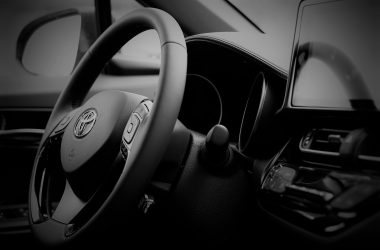How to classify the customers’ acceptance of autonomous vehicles? Recently many companies and associations conducted studies to find factors that might boost trust in self-driving cars. We compiled a list of relevant studies and found one critical factor that was mentioned throughout: the experience.
At the Automotive Tech.AD 2016 Prof. S. Henkel from the EBS Business School addressed the question how to improve the acceptance for autonomous driving. On the one hand he spoke about building reliable brands, on the other hand he suggested that the companies should give its customers the chance to test the technology and collect initial experiences.
AAA Survey and U.S. Tech Choice Study by J.D. Power
This March the AAA (American Automobile Association) conducted a survey on autonomous driving acceptance. People who have already experienced ADAS in their current cars have more confidence in the technology. On the top list are semi-autonomous systems like the emergency brake assistant. Shortly after Market researcher J.D.Power published similar results. In total the openness towards technology decreased, but just like in the AAA survey most consumers wish semi-autonomous systems, especially the ones that have already gained experience with ADAS.
Bosch & Continental Studies
Also in spring 2017 parts and systems supplier Bosch carried out a study in order to figure out the most desired driver assistance systems in newly bought vehicles. Again, braking assistance systems are topping the list here. Bosch also confirmed the bias towards experience as a factor that impacts the perception positively. Continental examined the human behaviour in automated cars to improve HMI (Human-Machine-Interfaces). The central point of the experiment was the handover from autonomous to manual driving. The researchers prepared a testing vehicle and made it look like it was driving autonomously although it was guided by a hidden person. The test persons sat in the vehicle and quickly gained trust in the technology because they were not aware of the person driving the car.
Auto Alliance (June 2016)
Manufacturer association Auto Alliance conducted a study on the attitude towards autonomous driving. 62% of the people that already use ADAS are open and curios when it comes to autonomous driving. The more systems a car has, the more grows the trust – that is what the study found out. As more and more driving assistants are integrated in our cars, the researchers expect the acceptance to grow steadily.
So what can we conclude from all these studies?
- Those who have already collected some experience with driving assistance technologies show a rather high acceptance for autonomous driving and are demanding more
- The most frequently mentioned downsides are the fear of technical failure and manipulation of the cars by criminals.
About the author:
David Fluhr is journalist and owner of the digital magazine “Autonomes Fahren & Co”. He is reporting regularly about trends and technologies in the fields Autonomous Driving, HMI, Telematics and Robotics. Link to his site: http://www.autonomes-fahren.de






